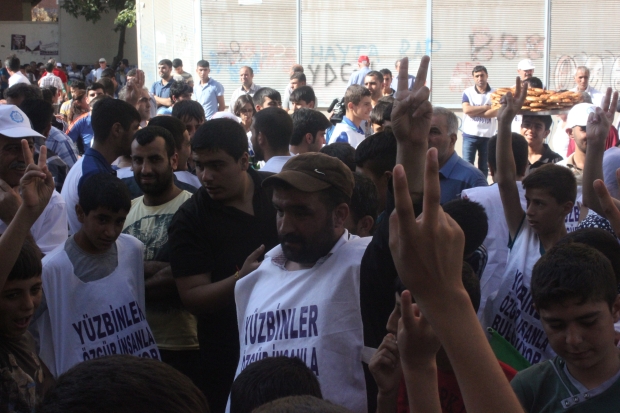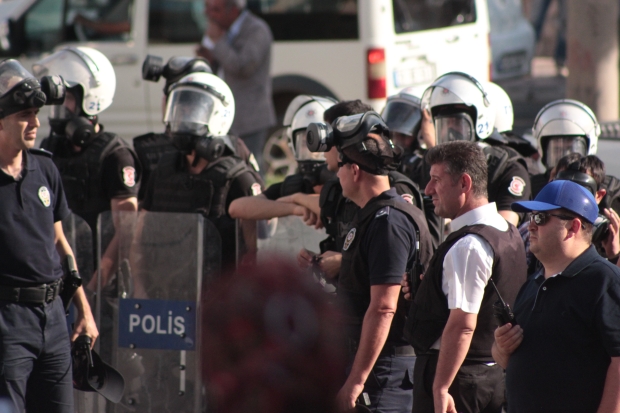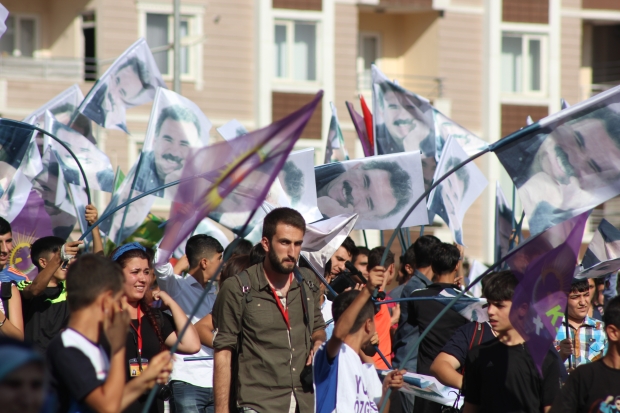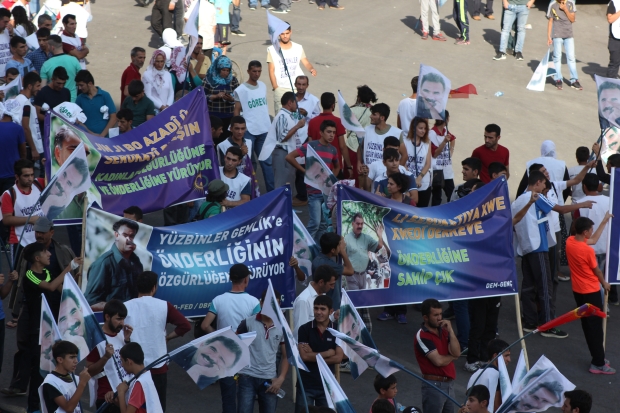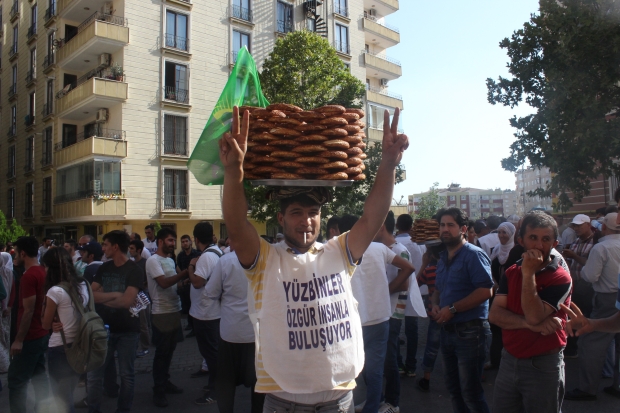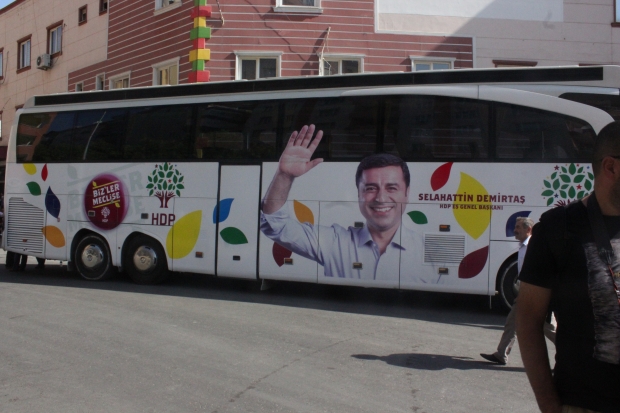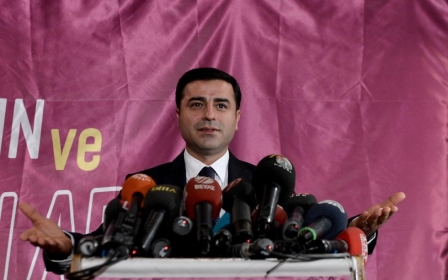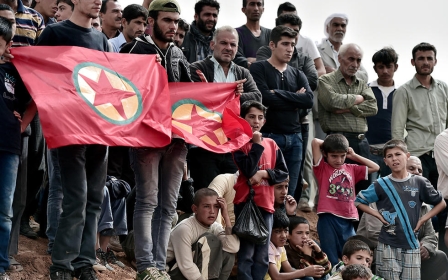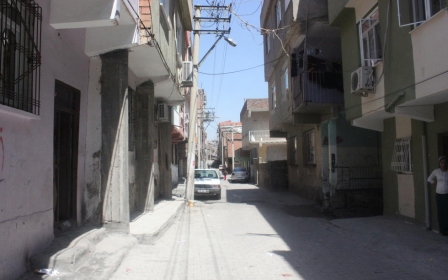Police break up march in Turkey demanding PKK leader's freedom
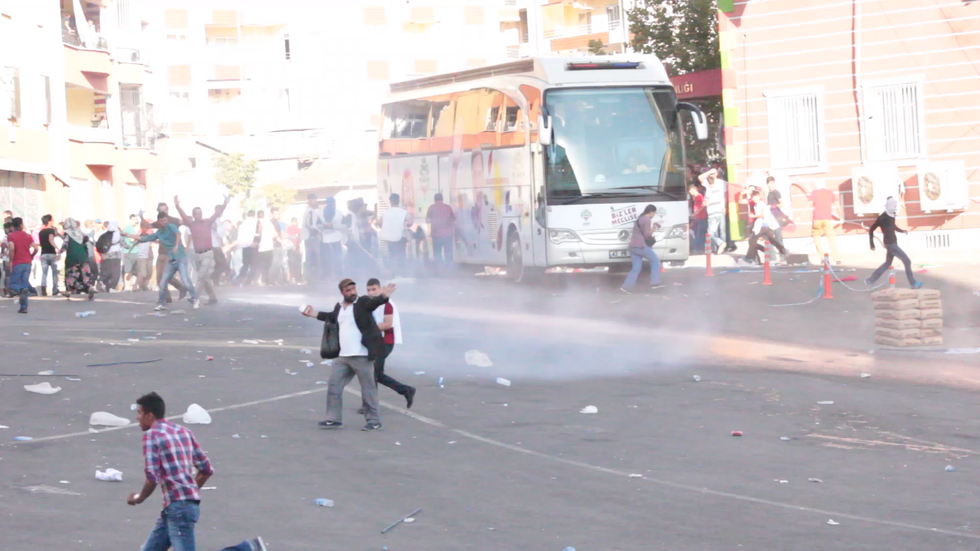
DIYARBAKIR - Police broke up a demonstration held by the People Democracy Party in Diyarbakir on Saturday, calling for the release of Abdullah Ocalan, leader of the Kurdistan Workers Party (PKK).
Hundreds assembled outside the headquarters of the HDP, with the intention of giving a send off to a campaign bus, which planned to travel from Diyarbakir to Gemlick in the east of the country.
Gemlick is the closest mainland location to Ocalan's cell on Imrali island in the Sea of Marmara, where he is currently the only prisoner.
After initially banning the march, the bus was allowed to set off, but before it did riot vans fired water cannons on the amassed demonstrators while officers fired teargas. At least one person was injured after being hit in the chest by a tear gas cannister.
“We know that there will be a ban on this march, but we insist on marching and we will go," said one demonstrator. “My culture, my language and society has been occupied by different forces for years and years.
“22 years ago I lost my father in an undefined crime. This showed us that they could not defeat us with crimes and killings.”
The march comes at a time when Kurdish-Turkish tensions have been at their worst since the height of the PKK conflict in the 1990s.
“There is no difference," said the protester. "As a child who lived in the 90s, I can see no difference between this and the 90s. There were crimes, killings, villages being bombed."
"In 2015 it's still the same.”
Ocalan has been imprisoned since 1999 where he sentenced in life in jail for treason after spending 15 years leading a bloody guerilla conflict against the Turkish state.
In 1999, threats of invasion by the Turkish government against Syria forced President Bashar al-Assad to expel Ocalan from the country, where he had been harboured since the 80s.
After various diplomatic wranglings, he eventually ended up in Kenya where he was captured in a joint CIA-Mossad operation.
Tried for treason in Turkey, he was sentenced to life imprisonment after the abolition of the death penalty.
For the Kurdish protesters on the march, Ocalan's release would mark a major shift in the politics of the Middle East.
“Mr Ocalan is physically blocked but his ideas are giving a light to all of the Middle East," said one man. "This march is to make him physically free.”
“We want to show them that we are following the ideas of Ocalan and we will show this to the whole world.”
Since his imprisoned, Ocalan claimed to abandon the Marxist-Leninism that characterised the PKK originally, in favour of a libertarian, multi-ethnic system called Democratic Confederalism.
His supporters claim that his ideas could work as a blueprint for challenging the sectarianism and ethnic violence besetting the Middle East and North Africa.
In Turkey, however, many regard Ocalan as the leader of a terrorist organisation responsible for over 40,000 deaths in Turkey.
Though the HDP is a seperate political party to the PKK, many have accused the two groups of having connections.
Both groups have Ocalan as their figurehead.
“Maybe our policies are similar to the PKK's policies because we come from the same society," said Diyarbakir HDP co-chair Omer Onen. "But we are an official political party.”
“Ocalan is not only the leader of the PKK - he is the leader of the Kurds.”
New MEE newsletter: Jerusalem Dispatch
Sign up to get the latest insights and analysis on Israel-Palestine, alongside Turkey Unpacked and other MEE newsletters
Middle East Eye delivers independent and unrivalled coverage and analysis of the Middle East, North Africa and beyond. To learn more about republishing this content and the associated fees, please fill out this form. More about MEE can be found here.


